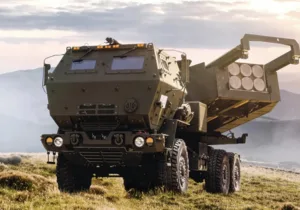Terrorism in Spain this week and American debates over Confederate monuments recall ongoing deliberation about the Francisco Franco era Valley of the Fallen outside Madrid. In May the Spanish parliament in a symbolic vote urged removing the body of the longtime dictator from the basilica there. The ruling conservative People’s Party abstained and will not implement the resolution proposed by opposition socialists.
The Valley of the Fallen is an enormous underground church, in size comparable to St. Peter’s Basilica in Rome, beneath a mountain and enormous cross, accompanied by an abbey of praying monks, and surrounded by thousands of acres of national park in which 40,000 Spanish Civil War fallen are interred. Franco, civil war victor, constructed the monument as a site of national reconciliation and atonement. Critics see it as an homage to his 40-year dictatorship. He’s buried in the basilica’s floor, the valley’s only non-war fatality.
How Franco should, if at all, be memorialized instructs other controversies about historical memory. Most memorials to him in democratic Spain have disappeared. But he can’t be ignored. He triumphed in a civil war that foreshadowed WWII and was more vicious than America’s. Franco was backed by Hitler and Mussolini. His republican opponents, ostensibly democratic but including communists, were backed by Stalin. Both sides were brutal. Republican atrocities against priests and nuns further motivated Catholics to back Franco, himself devout.
Although aligned with Hitler, Franco, as a Catholic, didn’t share his genocidal racial theories. The civil war’s victors waged a post-war white terror against defeated leftists. But Spain’s Jewish community was largely unmolested, and Jewish refugees found relative safety in Spain. Franco politely declined Hitler’s invite to join WWII, remaining officially neutral.
Franco was an unapologetic authoritarian who believed in the order of one-party rule, collaboration with the church, and compliant civil society. He saw multiparty democracy as the tool and fetish of Freemasons and Anglo-Saxons. The fascist-style Falangist party that backed him, whose founder was executed by the republican regime and is buried at the Valley of the Fallen, was ultimately an irritant to him. Franco eventually acceded to free market economics, facilitating Spanish prosperity and growing resistance to dictatorship.
Despite having an uneasy alliance with the Axis powers, Franco aligned after WWII with the West and specifically with the dreaded Anglo-Saxons. The U.S. maintained an air base in Spain, even once accidentally dropping some fortunately unexploded nuclear bombs on Spain. Franco was forgiving! An earlier visit by Eisenhower to Spain and Franco prompted Ike later to recall it as possibly his most spectacular reception by any country. Franco would conclude that the Freemasons of America, versus Europe, were tolerable.
Ostensibly, Franco restored the monarchy to safeguard his one-party regime after his death. But apparently he never counseled the royal heir on how he should rule, and Juan Carlos as king fairly quickly transitioned post-Franco Spain to democracy. Although never admitting it, Franco at the end had to have realized his dictatorship would end, thanks to his own policies.
Modern democratic Spain is both a rejection and product of Franco’s dictatorship. Should he be honored or despised? There are no simple answers. He wasn’t completely villain or hero. He was likely better, for the long term, than his republican opponents would have been, but knowing so now is easier than in the 1930s, when he was armed by the Third Reich. Dictators are always unsavory. But post-Franco Spain did better than post-Tito Yugoslavia or post-Shah Iran, for which Franco gets at least some credit.
Conversations about historical memories and monuments cannot easily divide history and humanity between sheep and goats. Trying to do so would be socially destructive and historically distorting. As one Spanish official said, quoting Scripture in defense of leaving Franco buried at Valley of the Fallen, “let the dead bury the dead.” God, and not we, is ultimate judge, and His final judgement falls on us all.







 Sponsor a student for Christianity & National Security 2024
Sponsor a student for Christianity & National Security 2024